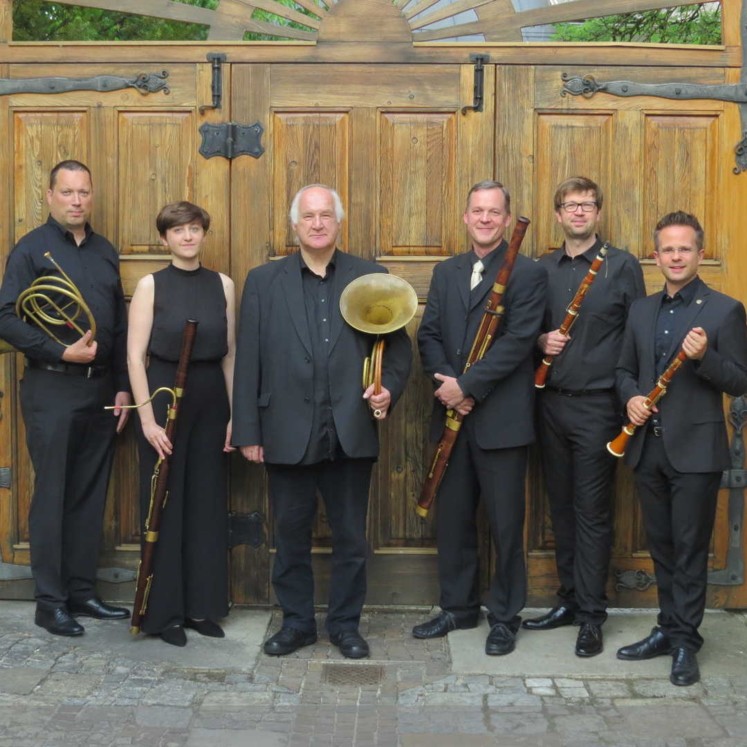
Symphonies are not always intended for a large orchestra. They can equally be written for specific instrumental groups, string symphonies or wind symphonies for example.
In the latter case these can be either arangements of well-known symphonic works for various combinations of wind instruments - Václav Havel's brillant arrangement of the first movement of Mozart's 39th Symphony is a typical example – or original compositions for wind instruments alone. Johann Christian Bach, for example, composed six four-movement miniature symphonies with a divertimento character, lively, spirited works which represented the popular music of their time.
Gaetano Donizetti's wind symphony on the other hand, written during his studies in Bologna, uses as a model the Italian opera overture, which was also designated a symphony. The programme is rounded off by two masterpieces. Charles Gounod's Petite Symphonie and Joachim Raff's Sinfonietta show us just how popular symphonic chamber music for wind instruments was, even in Bruckner's time. The Calamus Consort from Upper Austria, with its emphasis on historical performance practice, plays the first half of the programme authentically on Classical wind instruments and the second half on Romantic wind instruments.
Johann Christian Bach (1735–1782)
Wind Symphony No. 3 in Eb major for six wind instruments, Warb B Inc 9 (after 1777)
Wolfgang Amadeus Mozart (1756–1791)
Václav Havel (from about 1778–after 1826)
Andante – Allegro for seven wind instruments, First Movement from: Symphony No. 39 in Eb major, KV 543 (1788)
Johann Christian Bach (1735–1782)
Wind Symphony No. 4 in B major for six wind instruments, Warb B Inc 10 (after 1777)
Gaetano Donizetti (1797–1848)
Symphony in G minor for nine wind instruments (1817)
– Pause –
Charles Gounod (1818–1893)
Petite Symphonie in B major for nine wind instruments (1885)
Joachim Raff (1822–1882)
Sinfonietta in F major for ten wind instruments op. 188 (1873)
Calamus Consort
Dorothea Seel, Robert Pinkl | Flute
Magdalena Karolak, Taka Kitazato | Oboe
Ernst Schlader, Markus Springer | Clarinet
Michael Söllner, Albert Heitzinger | Horn
Franz Landlinger | Trumpet
David Douçot, Eckhard Lenzing | Bassoon
Klaus Huber | Moderation